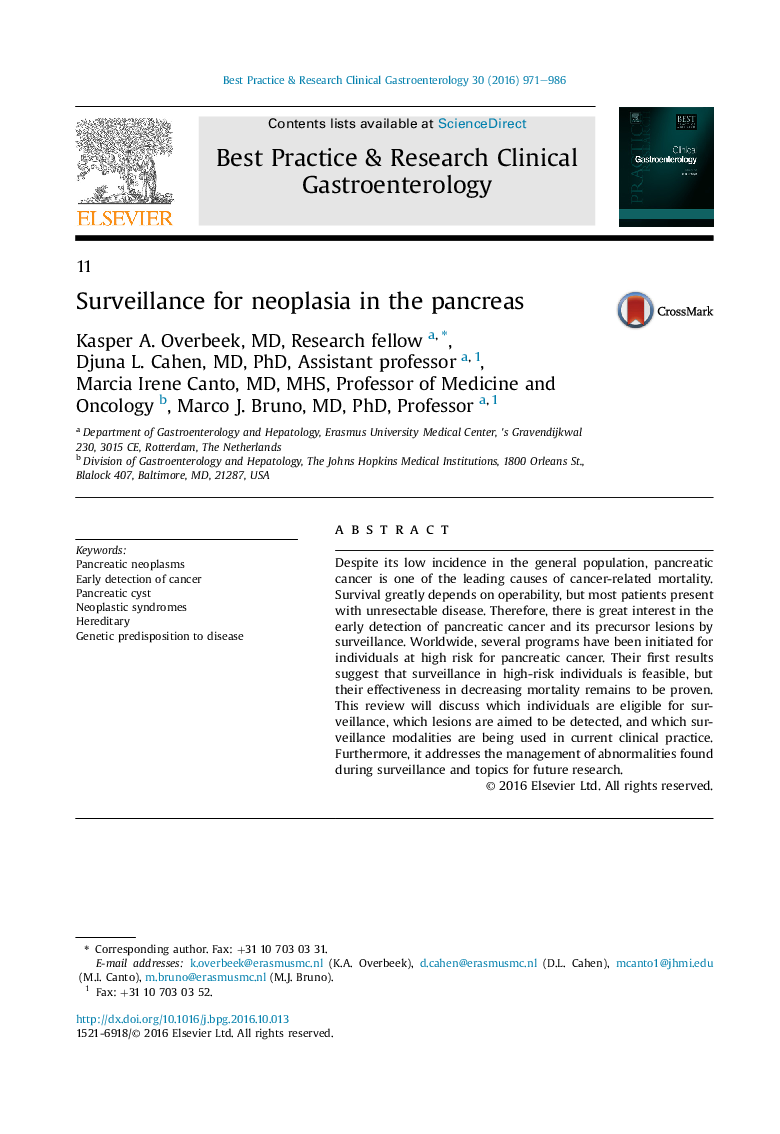| Article ID | Journal | Published Year | Pages | File Type |
|---|---|---|---|---|
| 8720688 | Best Practice & Research Clinical Gastroenterology | 2016 | 16 Pages |
Abstract
Despite its low incidence in the general population, pancreatic cancer is one of the leading causes of cancer-related mortality. Survival greatly depends on operability, but most patients present with unresectable disease. Therefore, there is great interest in the early detection of pancreatic cancer and its precursor lesions by surveillance. Worldwide, several programs have been initiated for individuals at high risk for pancreatic cancer. Their first results suggest that surveillance in high-risk individuals is feasible, but their effectiveness in decreasing mortality remains to be proven. This review will discuss which individuals are eligible for surveillance, which lesions are aimed to be detected, and which surveillance modalities are being used in current clinical practice. Furthermore, it addresses the management of abnormalities found during surveillance and topics for future research.
Keywords
Related Topics
Health Sciences
Medicine and Dentistry
Endocrinology, Diabetes and Metabolism
Authors
Kasper A. (Research fellow), Djuna L. (Assistant professor), Marcia Irene (Professor of Medicine and Oncology), Marco J. (Professor),
